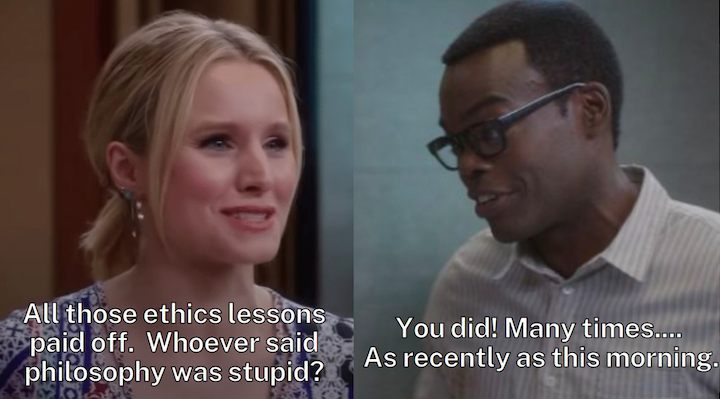What It’s Like To Work With Philosophers

Why it matters that Compass consultants are philosophers first and foremost.
Not long ago, I was having a working lunch in San Francisco with two of our consultants here at Compass—Dr. Jeremy Davis and Dr. Bradley Strawser. We were talking through a particularly tricky challenge one of our clients had asked us to solve. Well, mostly Jeremy was talking, and Bradley and I were eating and listening.

Jeremy was taking his time—carefully, gradually building a case for how he thought our client should address the problem. He was unspooling his mind, and I was trying to follow the thread.
Put yourself in my shoes: My professional background is in business—operations, management, project oversight. For decades, I’ve been focused on the practical, nuts-and-bolts rigor of building and running teams and delivering bottom-line results. That’s my wheelhouse.
Like most Compass consultants, Jeremy and Bradley come from a different world—they’re Dr. Davis and Dr. Strawser, holding Ph.D.s from elite philosophy programs, publishing peer-reviewed research in top-flight philosophy journals, and teaching academic philosophy to some of the most brilliant students around. I’ve always respected philosophy as an academic discipline, but I’ve never pretended to understand it.
So there I was in San Francisco, poking a fork at my salad and doing my best to follow along with Jeremy’s string of thoughts.
But as I listened, I noticed something: After Jeremy built an entire case for what he thought our client should do—after carefully and comprehensively articulating one side of the argument—he started to argue it from the other side. He poked holes in everything he had just said.
I was starting to lose my mind: He’s just spent half of lunch arguing one thing, and now he’s arguing the opposite!
Later that day, I mentioned it to Bradley. Why was Jeremy contradicting himself?
“He’s not,” said Bradley. “He’s doing his job.” Jeremy was building the best possible case for our client, and then he was testing the strength of that case. He was looking for weaknesses, testing for flaws, imagining all the ways he might be proven wrong.
That mental exercise may sound simple enough, but in reality it is very hard to do. Not everyone can do it well. Thinking all the way through more than one perspective with impartiality and precision takes time, effort, and training—including the kind of training you get with a Ph.D. in philosophy.
Our clients come to us because they’re facing problems that cannot be worked out easily. Maybe they’re getting internal pressure to speak out on a controversial political issue that is sure to get them in trouble with one group of stakeholders or another. Maybe they’re working in a new field such as Artificial Intelligence or experimental medicine with ambiguous social impacts. Maybe they’re launching a diversity and inclusion initiative without clear guidelines and goals.
Challenges like these put organizations on uncertain footing. Many times, business leaders have to decide between two or more ways of addressing an issue. Do we speak out or stay silent? Do we embrace innovation or reduce risk? How far do we go in building equity in our organization?
Philosophers are trained to deal with this uncertainty. Indeed, they’re trained to provide clear, confident, dependable answers in areas rife with ambiguity and controversy. That’s their wheelhouse.
Businesspeople like me want the world to exist in black and white. But life happens in gray. Business happens in gray, too. As much as I’d like to plot every corporate challenge within an Excel spreadsheet, the reality is that many business problems are cultural, moral, and, yes, philosophical. There is no Excel formula for ambiguity.
But there is a way through ambiguity, and I’ve come to rely on the Jeremys and Bradleys of the world to show that way. I’ve come to see that philosophy is a process. Philosophers take on hard questions. They research the heck out of the available answers. They dig deep and come up with a solid solution. They stress-test that solution from every conceivable angle. Then they deliver a refined solution that can be applied with confidence.
If you had asked me a few years ago what philosophers do—and what relevance they have to the world of business—I would have shrugged. But after the experience of working with philosophers all day, every day at Compass, I can say that what philosophers do is solve problems. They do the hard thinking for the rest of us, then help us turn that knowledge into action.
I used to think philosophy was just thinking. Now I know it’s thinking in order to do. I’m confident that philosophy is helping our clients do better business.

